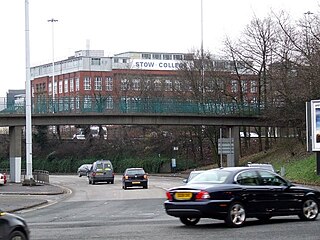Related Research Articles
Piercing the corporate veil or lifting the corporate veil is a legal decision to treat the rights or duties of a corporation as the rights or liabilities of its shareholders. Usually a corporation is treated as a separate legal person, which is solely responsible for the debts it incurs and the sole beneficiary of the credit it is owed. Common law countries usually uphold this principle of separate personhood, but in exceptional situations may "pierce" or "lift" the corporate veil.
Malice is a legal term which refers to a party's intention to do injury to another party. Malice is either expressed or implied. For example, malice is expressed when there is manifested a deliberate intention to unlawfully take away the life of a human being. Malice is implied when no considerable provocation appears, or when the circumstances attending the killing show an abandoned and malignant heart. Malice, in a legal sense, may be inferred from the evidence and imputed to the defendant, depending on the nature of the case.

Godfrey v Demon Internet Service [2001] QB 201 was a landmark court case in the United Kingdom concerning online defamation and the liability of Internet service providers.

Adams v Cape Industries plc [1990] Ch 433 is a UK company law case on separate legal personality and limited liability of shareholders. The case also addressed long-standing issues under the English conflict of laws as to when a company would be resident in a foreign jurisdiction such that the English courts would recognise the foreign court's jurisdiction over the company. It has in effect been superseded by Lungowe v Vedanta Resources plc, which held that a parent company could be liable for the actions of a subsidiary on ordinary principles of tort law.

The United Kingdom company law regulates corporations formed under the Companies Act 2006. Also governed by the Insolvency Act 1986, the UK Corporate Governance Code, European Union Directives and court cases, the company is the primary legal vehicle to organise and run business. Tracing their modern history to the late Industrial Revolution, public companies now employ more people and generate more of wealth in the United Kingdom economy than any other form of organisation. The United Kingdom was the first country to draft modern corporation statutes, where through a simple registration procedure any investors could incorporate, limit liability to their commercial creditors in the event of business insolvency, and where management was delegated to a centralised board of directors. An influential model within Europe, the Commonwealth and as an international standard setter, UK law has always given people broad freedom to design the internal company rules, so long as the mandatory minimum rights of investors under its legislation are complied with.

DHN Food Distributors Ltd v Tower Hamlets London Borough Council [1976] 1 WLR 852 is a UK company law case where, on the basis that a company should be compensated for loss of its business under a compulsory acquisition order, a group was recognised as a single economic entity. It stands as a liberal example of when UK courts may lift the veil of incorporation of a company.

Atlasview Ltd v Brightview Ltd[2004] EWHC 1056 (Ch) is a UK company law case, which concerns a claim for unfair prejudice and raised the question of barring a claim if attempted to recover for reflective loss. The case is a notable precedent because it makes clear that a nominee shareholder is also a legitimate petitioner for unfair prejudice.

Woolfson v Strathclyde Regional Council [1978] UKHL 5 is a UK company law case concerning piercing the corporate veil.

Littlewoods Mail Order Stores v Inland Revenue Commissioners [1969] 1 WLR 1241 is a UK company law case concerning piercing the corporate veil.

Wallersteiner v Moir [1975] QB 373 is a UK company law case, concerning the rules to bring a derivative claim. The updated law, which replaced the exceptions and the rule in Foss v Harbottle, is now contained in the Companies Act 2006 sections 260-264, but the case remains an example of the likely result in the old and new law alike.

Peskin v Anderson [2000] EWCA Civ 326 is a UK company law case concerning directors' duties under English law.
The corporate veil in the United Kingdom is a metaphorical reference used in UK company law for the concept that the rights and duties of a corporation are, as a general principle, the responsibility of that company alone. Just as a natural person cannot be held legally accountable for the conduct or obligations of another person, unless they have expressly or implicitly assumed responsibility, guaranteed or indemnified the other person, as a general principle shareholders, directors and employees cannot be bound by the rights and duties of a corporation. This concept has traditionally been likened to a "veil" of separation between the legal entity of a corporation and the real people who invest their money and labor into a company's operations.
Corporate litigation in the United Kingdom is that part of UK company law which gives investors the right to sue the directors of a company, or vindicate another wrong to the company, particularly where the board of directors does not wish to act itself.

McAlpine v Bercow was a landmark libel case in 2013 between Conservative peer Lord McAlpine and Sally Bercow, the wife of John Bercow, Speaker of the House of Commons.

Prest v Petrodel Resources Ltd[2013] UKSC 34, [2013] 2 AC 415 is a leading UK company law decision of the UK Supreme Court concerning the nature of the doctrine of piercing the corporate veil, resulting trusts and equitable proprietary remedies in the context of English family law.

Johnson v Gore Wood & Co[2000] UKHL 65 is a leading UK company law decision of the House of Lords concerning (1) abuse of process relating to litigating issues which have already been determined in prior litigation or by way of settlement, (2) estoppel by convention, and (3) reflective loss of a shareholder with respect to damage which was done to the company in which he holds shares.

Nilon Limited v Royal Westminster Investments S.A.[2015] UKPC 2, P.C. is a leading case of the Judicial Committee of the Privy Council on the right of a party to seek rectification of a company's share register, and the use of "anchor defendants". The case also included various obiter comments about the doctrine of forum non conveniens.

VTB Capital plc v Nutritek International Corp[2013] UKSC 5, [2013] 2 AC 337 is an English company law case, concerning piercing the corporate veil for fraud.

The British Post Office scandal is a miscarriage of justice involving the wrongful civil and criminal prosecutions of an unknown or unpublished number of sub-postmasters (SPMs) for theft, false accounting and/or fraud. The cases constitute the most widespread miscarriage of justice in British legal history, spanning a period of over twenty years; it remains unresolved.
McDonald v Horn [1995] 1 All ER 961 is an English trusts law case on pensions, relevant for UK labour law. It enables the beneficiaries of a pension fund to be indemnified for costs in bringing actions for breach of trust, fiduciary duty or the duty of care against the trustees or directors of a pension fund.